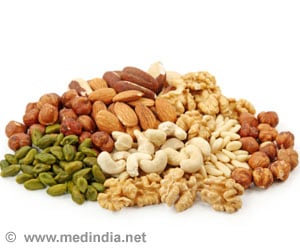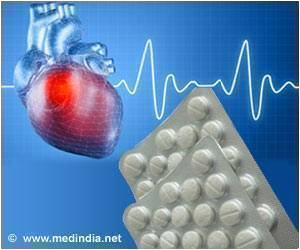
The study, in the December issue of the Journal of Lipid Research with an accompanying editorial, focused on a group of lipids found in the small intestine called unsaturated lysophosphatidic acids (LPAs).
"These lipids may be a new culprit that we can target in the small intestine in fighting atherosclerosis," said senior author Dr. Alan Fogelman, executive chair of the department of medicine and director of the atherosclerosis research unit at the David Geffen School of Medicine at UCLA.
Big effect of small amount of LPA
Previously, it was thought that the role of the small intestine in response to a high-fat, high-cholesterol diet was simply to package the fat and cholesterol for transport to the liver. Once delivered to the liver, the large load of fat was thought to cause increased blood levels of LDL ("bad") cholesterol, decreased levels of "good" cholesterol and the rise of systemic inflammation.
But that may not be the complete story. The UCLA researchers revealed that LPAs, previously considered very minor because they are found in far smaller amounts in the small intestine than other lipids, like cholesterol, may play a more direct role in contributing to the factors that cause atherosclerosis.Scientists found that mice fed a high-fat, high-cholesterol diet (21 percent fat) showed a two-fold increase in the amount of LPAs in the small intestine over mice fed normal low-fat mouse chow (4 percent fat).
Advertisement
Surprisingly, with the addition of LPAs to the low-fat diet, the UCLA team also found alterations in the patterns of gene expression in the small intestine, changes in cholesterol levels (increases in LDL and decreases in HDL) and increases in blood markers of inflammation typically seen when the mice consumed a high-fat, high-cholesterol diet.
Advertisement
"Recognizing the importance of these minor lipids in the small intestine may lead to ways to reduce their levels and prevent abnormalities in blood levels of 'good' and 'bad' cholesterol that contribute to heart attack and stroke," Fogelman said.
Testing the tomatoes
The next step was to test the impact of the genetically engineered tomatoes on reducing the effects of these lipids in the small intestine. The tomatoes, created at UCLA, produce a small peptide called 6F that mimics the action of apoA-1, the chief protein in HDL.
Researchers added 2.2 percent (by weight) of freeze-dried tomato powder from the peptide-enhanced tomatoes to low-fat, low-cholesterol mouse chow that was supplemented with LPAs. They also added the same dose of the peptide-enhanced tomatoes to the high-fat high- cholesterol diet.
They found that this addition to both diets prevented an increase in the level of LPAs in the small intestine and also stopped increases in "bad" cholesterol, decreases in "good" cholesterol and systemic inflammation. Tomatoes that did not contain the peptide had no effect.
According to Fogelman, the peptide-enhanced tomatoes may work in large part by reducing the amount of the LPAs in the small intestine.
Future research will focus on identifying the genes in the small intestine that are altered by the LPAs in order to find signaling pathways that may be targets for treatment."Identifying the role of these specific lipids in the small intestine and new ways to target them will hopefully provide new insights and lead to new treatments," said Judith Gasson, a professor of medicine and biological chemistry, director of UCLA's Jonsson Comprehensive Cancer Center, and senior associate dean for research at the Geffen School of Medicine.
The study was supported in part by U.S. Public Health Service research grants HL-30568 and HL-34343 and by the Laubisch, Castera and M.K. Grey funds at UCLA. Studies on the determination of 6F in intestinal contents and plasma were partially funded by a Network Grant from the Leducq Foundation.
All of the intellectual property is owned by the UC Regents and managed by the UCLA Office of Intellectual Property and Industry Sponsored Research. The technology is currently licensed exclusively to Bruin Pharma Inc. Authors Alan M. Fogelman, Mohamad Navab and Srinivasa T. Reddy are principals in Bruin Pharma. Fogelman is an officer in the startup company. Other disclosures are available in the manuscript.
Source-Eurekalert















